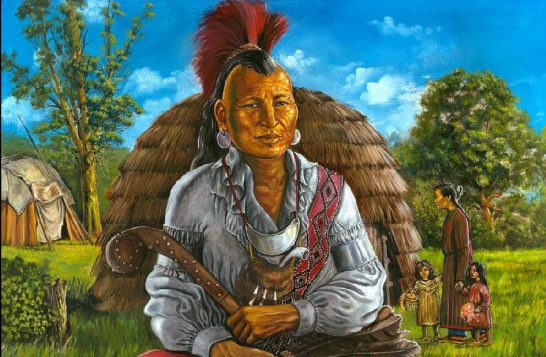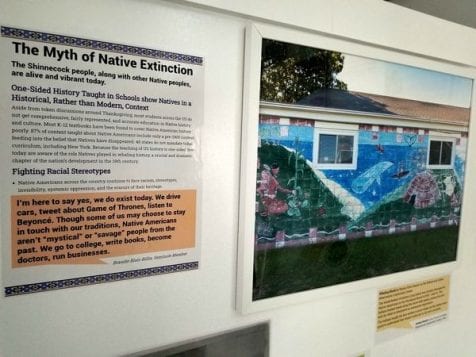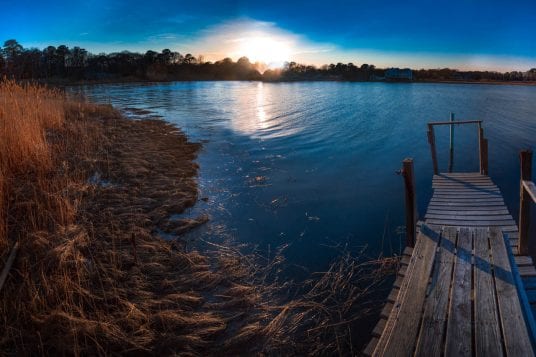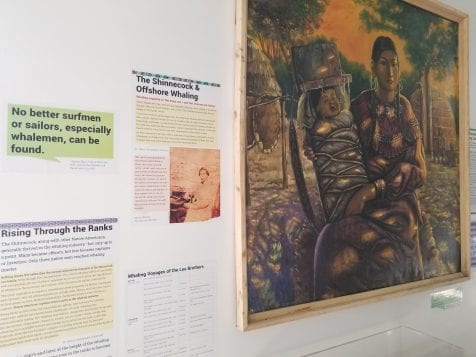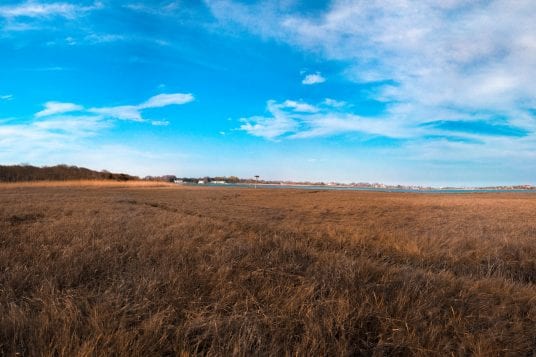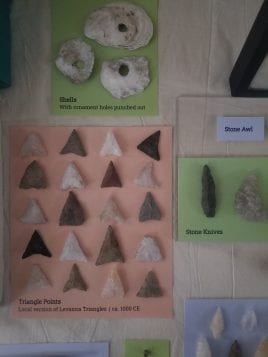Offers insight into Indigenous maritime history
By Tara Mae
For thousands of years, the Shinnecock (“People of the Stony Shore”) have depended on the water and maritime industries.
Expressed mainly through contemporary artwork, first person narratives, and historic artifacts, the Cold Spring Harbor Whaling Museum and Education Center’s new exhibit, Shinnecock Artists and Long Island’s First Whalers, explores the often overlooked history of Indigenous whalers as well as the relationship between Indigenous people of Long Island and the sea.
“We wanted to spotlight the fascinating but under-told maritime history of the Shinnecock people. We used this exhibit as a launch to spotlight history as a whole,” Executive Director Nomi Dayan explained.
This dynamic is largely represented through the work of Shinnecock artists, especially Jeremy Dennis and David Martine, who contributed photography and oil paintings. Interactive elements are also incorporated into the installation, such as a children’s activity table and videos by Shinnecock artist Shane Weeks.
“We took a conscious step of staff stepping back and collaborating with several native artists, to spotlight native voices,” Dayan added.
Relics from Long Island’s Indigenous nautical past are showcased, like scrub brushes, items extracted from a midden (an old trash heap), and a small whalebone paddle. “I like how Nomi chose to frame our heritage and history through the lens of whaling … It’s a good way to show whaling as part of our history,” said Dennis.
Dependence on the ocean for survival influenced many aspects of tribal life, encompassing arts, values, and culture. However, much of the most accessible scholarship focuses on the European settlers’ relationship to the sea and overlooks local Indigenous history.
“Any exhibit like this is important for examining the Native American culture of Long Island, especially pertaining to the history of whaling and maritime culture of the local tribes, which were big parts of the culture for thousands of years. Native American culture doesn’t have much mainstream recognition except in inaccurate movie and television portrayals,” Martine said.
Open to the public through 2022, the display is a manifestation of the museum’s concerted effort to elevate and amplify the stories of traditionally otherized groups and diversify the stories the museum presents, according to Dayan.
“It came out of a strategic initiative … we prioritize telling stories of historically marginalized people. Pivoting to tell stories of Indigenous people addresses several needs, including strengthening visibility of the Shinnecock people, who have a long history of marginalization and dispossession. A preliminary study of the public indicated that it had limited prior knowledge of the Shinnecock, but interest in the tribe’s ways and culture was high,” she said.
Dennis similarly recognizes the impact of this exhibit. “There is a misunderstanding that the Shinnecock are no longer here, so creating any type of visual art or expression is a good start of showing that we are still here,” he said.
Like other Indigenous communities, the Shinnecock are currently being disproportionately affected by the COVID-19 pandemic. In highlighting the work of Indigenous artists, the museum expands patrons’ awareness of the Shinnecock tribe’s continued presence on Long Island and broadens their understanding of its history, according to Dayan.
To kick off programming for the exhibit, a virtual artist chat with Jeremy Dennis will be held on February 17 at 6 p.m. Dennis will discuss his landscape photography project, On This Site — Indigenous Long Island. Tickets may be obtained online at www.cshwhalingmuseum.org/events, under the “Virtual Chats” tab.
The Whaling Museum is located at 301 Main Street in Cold Spring Harbor and is currently open on Saturdays and Sundays from noon to 4 p.m. Tickets to the exhibit may be purchased online at www.cshwhalingmuseum.org/visit. Social distancing will be observed and masks are mandatory for entry. For further information, call 631-367-3418.
Photos courtesy of Whaling Museum of Cold Spring Harbor

